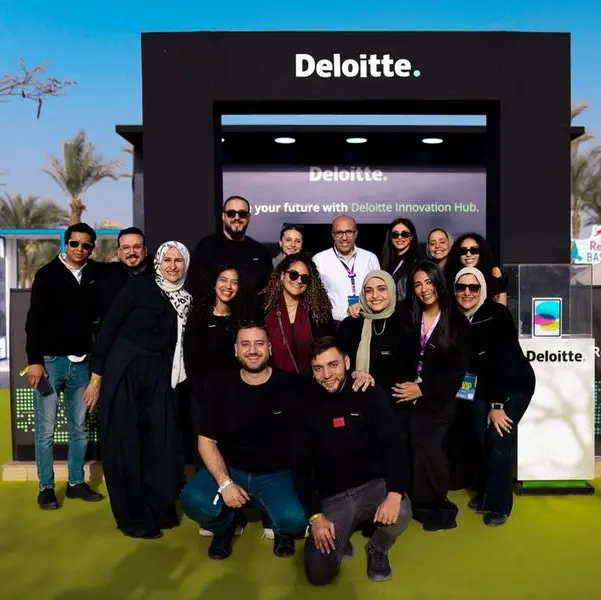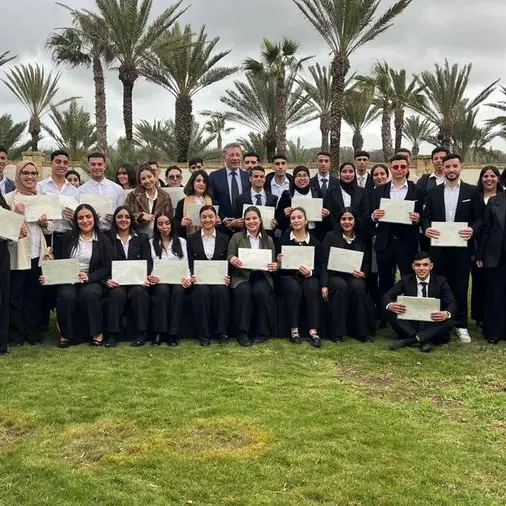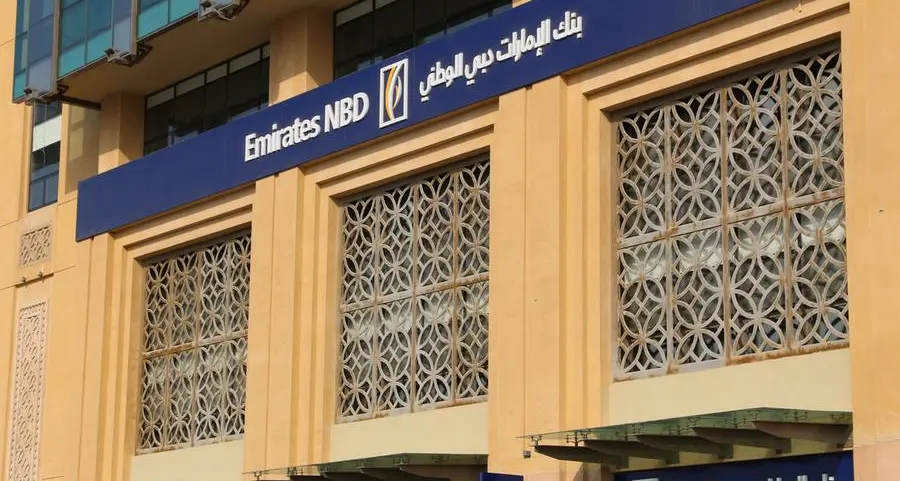Kuwait: Marmore MENA Intelligence “Marmore”, the research arm of Kuwait Financial Centre “Markaz”, recently collaborated with the Kuwait Foundation for the Advancement of Sciences (KFAS) in creating and releasing a study titled ‘FinTech: Future of Financial Services’. The key findings of the report were presented in a talk organized by KFAS on Sunday 22nd of September 2019.
- R. Raghu, Executive Vice President, Published Research at “Markaz” and Managing Director of “Marmore”, commenced the talk by presenting the big picture that is shaping the growth and development of Fintech. He specifically pointed out metrics like mobile penetration, young demography, internet penetration, and a vibrant eco-system. He argued that Fintech is disruptive to banks in many ways and elaborated the reasons and how it can be disruptive. He said that many banking functions can be performed by Fintech. At the same time, M. R. Raghu highlighted that FinTech is not only reshaping the global financial services architecture, but is also creating new and exciting opportunities for multiple stakeholders, including small businesses. Moreover, the Kuwaiti FinTech ecosystem is increasingly getting synthesized with multiple policy priorities (economic diversification, financial services center, etc.).
- R. Raghu explained the key technologies behind the Fintech and how open banking is coming soon. He dwelled on the supply side factors of Fintech like social media, mobile adoption, cloud technologies and analytics process as well as demand side factors like changing client expectations. M. R. Raghu elaborated Fintech initiatives undertaken by various Kuwait banks and opined that they are indeed noteworthy. He presented the report findings on how Fintech will impact Kuwait banks in terms of their loan portfolio and net income.
For Kuwait, FinTech innovations have the potential to beneficially influence the financial services industry and promote financial inclusion; provide greater access to capital for small businesses; and more broadly redesign how stakeholders interact with evolving financial technologies. As Kuwait’s FinTech ecosystem continues to evolve, all stakeholders—including government and Kuwait’s private sector—must proactively collaborate in its development to ensure that value maximization occurs in a safe and fully sustainable manner.
- R. Raghu outlined the overarching principles that outline a framework that policymakers and regulators can potentially use to deliberate and engage to assess the overall FinTech ecosystem and connected policy objectives. Similarly, the industry and civil society stakeholders can use the presented framework to understand how an inclusive financial system can manifest through public-private cooperation.
As the Kuwaiti FinTech ecosystem continues to rapidly evolve, the development of smart, practical, and authentic cross-sector engagement is essential. This is because the fashion in which development and further commercialization of innovative financial business models proliferate will underpin the positioning of Kuwait’s financial sector in the international scene. The caveat is that, like any other technology or tool, the FinTech phenomenon is neither good nor bad in itself. It is the usage patterns that matter.
It is fully clear that FinTech will continue disrupting existing business models. While it creates great opportunities for delivery of better business models and financial inclusion, it also harbors the potential to spawn new methods for digital fraud and cybercrimes.
That is why it is critical that governments and central banks maintain a close watch on developments.
- R. Raghu concluded that FinTech innovations carry colossal transformative power, and Kuwait’s competitive edge can be sharpened further through targeted innovation. Thus, the collaboration of multiple stakeholders can catalyze innovation and change by horizon scanning for opportunities and emerging risks. The outcome could be a virtuous circle that fosters significant economic diversification and financial inclusion.
About Kuwait Financial Centre “Markaz”
Established in 1974, Kuwait Financial Centre K.P.S.C “Markaz” is one of the leading asset management and investment banking institutions in the MENA region with total assets under management of over KD 1.11 billion as of 30 June 2019 (USD 3.66 billion). Markaz was listed on the Boursa Kuwait in 1997.
© Press Release 2019Disclaimer: The contents of this press release was provided from an external third party provider. This website is not responsible for, and does not control, such external content. This content is provided on an “as is” and “as available” basis and has not been edited in any way. Neither this website nor our affiliates guarantee the accuracy of or endorse the views or opinions expressed in this press release.
The press release is provided for informational purposes only. The content does not provide tax, legal or investment advice or opinion regarding the suitability, value or profitability of any particular security, portfolio or investment strategy. Neither this website nor our affiliates shall be liable for any errors or inaccuracies in the content, or for any actions taken by you in reliance thereon. You expressly agree that your use of the information within this article is at your sole risk.
To the fullest extent permitted by applicable law, this website, its parent company, its subsidiaries, its affiliates and the respective shareholders, directors, officers, employees, agents, advertisers, content providers and licensors will not be liable (jointly or severally) to you for any direct, indirect, consequential, special, incidental, punitive or exemplary damages, including without limitation, lost profits, lost savings and lost revenues, whether in negligence, tort, contract or any other theory of liability, even if the parties have been advised of the possibility or could have foreseen any such damages.



















